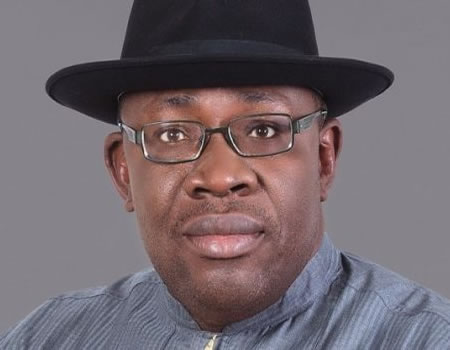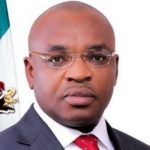Sequel to the usage of sub-standard materials resulting in faulty structure across the country, Governor Seriake Dickson of Bayelsa State has emphasised the need for more research laboratories in the Niger Delta and the country to check and approve quality of materials, engineers handling projects and required mixture to outlaw routine collapse of structures in different parts of the country.
Represented by his Deputy, Rear Admiral Gboribiogha John Jonah (retd), Dickson at the engineering summit held in Yenagoa, inaugurated the Engineering Regulation Monitoring Inspectorate, commissioned state office complex of the Council for the Regulation of Engineering in Nigeria (COREN)/Nigeria Council for Engineers (NSE); and also performed the ground breaking of South-South Engineering Centre (ERC).
The Governor was emphatic that engineers should play leading roles when it came quality control, basically because engineers completes massive structures and edifice from the drawing, while all materials use in construction were subjected to quality test analysis so that the structure would endure for decades, just like the Buckingham palace in London, Michael Angelo hotel in South Africa and the White House in America.
Dickson pointed that it was for this reason that government built a quality control laboratory to reduce construction and material failure in the state, even as he noted that all materials used by the engineers for the Bayelsa State Airport runway and terminal were approved by the quality control laboratory.
He stressed the need for better treatment for engineers owing to the sensitive nature of their job, and urged undergraduate engineers to take their studies seriously because the profession was noble with a lot of prospects in society.
Earlier, president of the Nigerian Society of Engineers, Otis Anyaeji, represented by his Vice, Engineer Joseph Akinteye, expressed concern over the infiltration of the engineering profession by quacks. Anyaeji said it had become imperative to take practical steps in reversing the trend and urged all to validate the claims and credentials of anyone, who engaged in engineering projects towards forestalling the incidences of structure collapse in the country.
Also speaking, President of the Council for the Regulation of Engineering in Nigeria, COREN, Engineer Kashim Abdul Ali, said for the country to achieve sustainable development, indigenous capacities must be developed rather than allow foreign companies to continue to dominate in virtually all engineering projects.
Ali, who urged engineers to be above board in the practice of their profession, said over 90% of the country’s appropriations were in engineering jobs, through which a greater percentage of corruption takes place.
Also the State Chairman of the Nigerian Society of Engineers (NSE), Engineer Olaowei Indiamaowei said act that set up COREN empowers it to control and regulate the training and practice of engineers and to enforce the registration of all engineering personnel as well as consulting firms practicing in the country.
Continuing, he noted that engineers or consulting firms that are not registered with COREN are quacks, and that they are responsible for failed projects due to failed procedure, even as he attribute the structural collapsed of a building in the Niger Delta University, Amassoma to the usage of quacks.
Noting that quackery is unacceptable in engineering profession, Indiamaowei said the council is prepared to enforce sanction on unregistered engineers, while calling on government to partner with state chapter of NSE to create employment, improve internal revenue, outlaw construction/material failure and to subject test result of multinationals to state engineer’s laboratory integrity check thereby adding value to registered engineers in the state.
He emphasized the need for government to ensure all engineers get clearance certificate from the NSE in the state, as it is the norms abroad and in other metropolitan city in the country to enable her guarantee claims and capacity of firms handling construction projects in the state and country.
To this end, he appealed for support from the state government to enable council meet its annual obligations, stressing that payment of due, membership examination and consultancy barely assuage the myriads of needs faced by council, even as he appeal for a routine inspectorate vehicle for council of engineers in the state.






